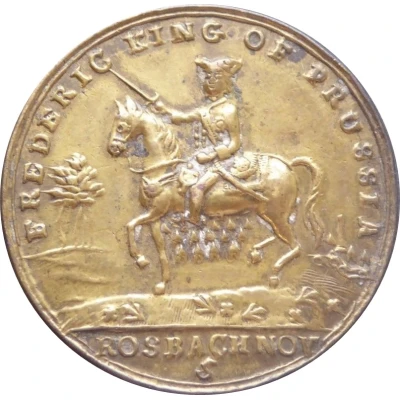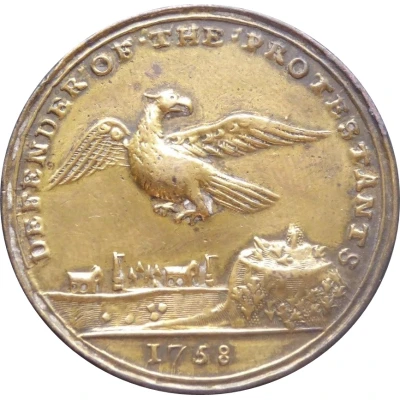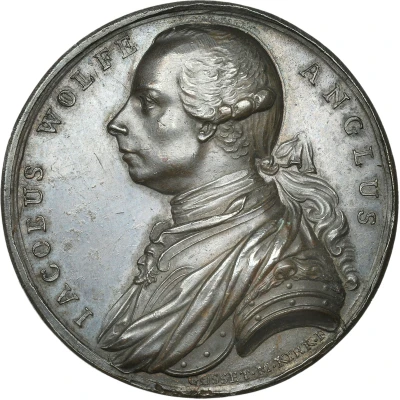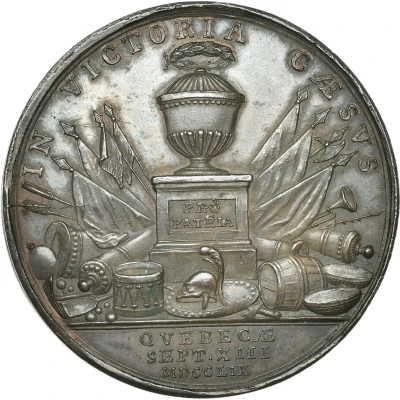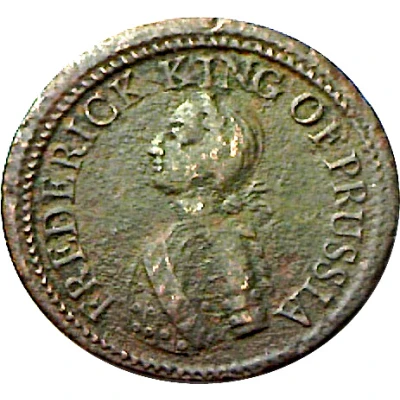
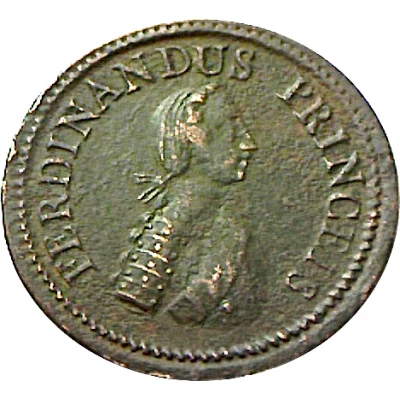

© ZacUK
Medal - Frederick King of Prussia ND
1759 year| Copper | 7.4 g | 27.8 mm |
| Location | United Kingdom (United Kingdom, British Overseas Territories and Crown Dependencies) |
|---|---|
| King | George II (1727-1760) |
| Type | Medals › Commemorative medals |
| Year | 1759 |
| Composition | Copper |
| Weight | 7.4 g |
| Diameter | 27.8 mm |
| Thickness | 1 mm |
| Shape | Round |
| Orientation | Coin alignment ↑↓ |
| Updated | 2024-11-14 |
| Numista | N#84423 |
|---|---|
| Rarity index | 97% |
Reverse
Military three-quarter figure to right. Lettering around, toothed border
Script: Latin
Lettering: FERDINANDUS PRINCEPS
Translation: Prince Ferdinand
Engraver: John Kirk
Edge
Plain
Comment
Although undated, this is believed to have been struck around 1758. Germany - Frederick King of Prussia Medal.Probably struck in Great Britain by John Kirk in the early 18th Century.
The quaint manner of this portrait reminds one of those other portraits of Frederick the Great, on pieces struck during the Seven Year's War and, likewise, of Admiral Vernon medals.
Frederick the Great & the Duke, Prince Ferdinand of Brunswick his Field Marshal. Struck for The Battle of Krefeld (sometimes referred to by its French name of Créfeld) a battle fought on June 23, 1758 between a Prussian-Hanoverian army commanded by Prince Ferdinand and a French army during the Seven Years' War.
It is suspected this might just be the work of John Kirk, the obverse inscription is in English, which points to an English maker. Kirk had engraved another medal of Prince Ferdinand (battle of Minden 1759) and he did make both expensive and cheap medals. It is curious that the reverse is in Latin but Kirk was conversant with both Latin and English.
After Minden, King George II of Great Britain gave the Duke the order of the Garter, and the thanks of the British parliament were voted on the same occasion to the victor of Minden. After the war, he was honored by other sovereigns, and he received the rank of Field Marshal and a regiment from the Austrians. During the War of American Independence, there was a suggestion (which came to nothing) of offering him the command of the British forces. He devoted most of the small income he received (from his various offices and the rewards given to him by the allied princes) to compensate those who had suffered in the Seven Years' War.
